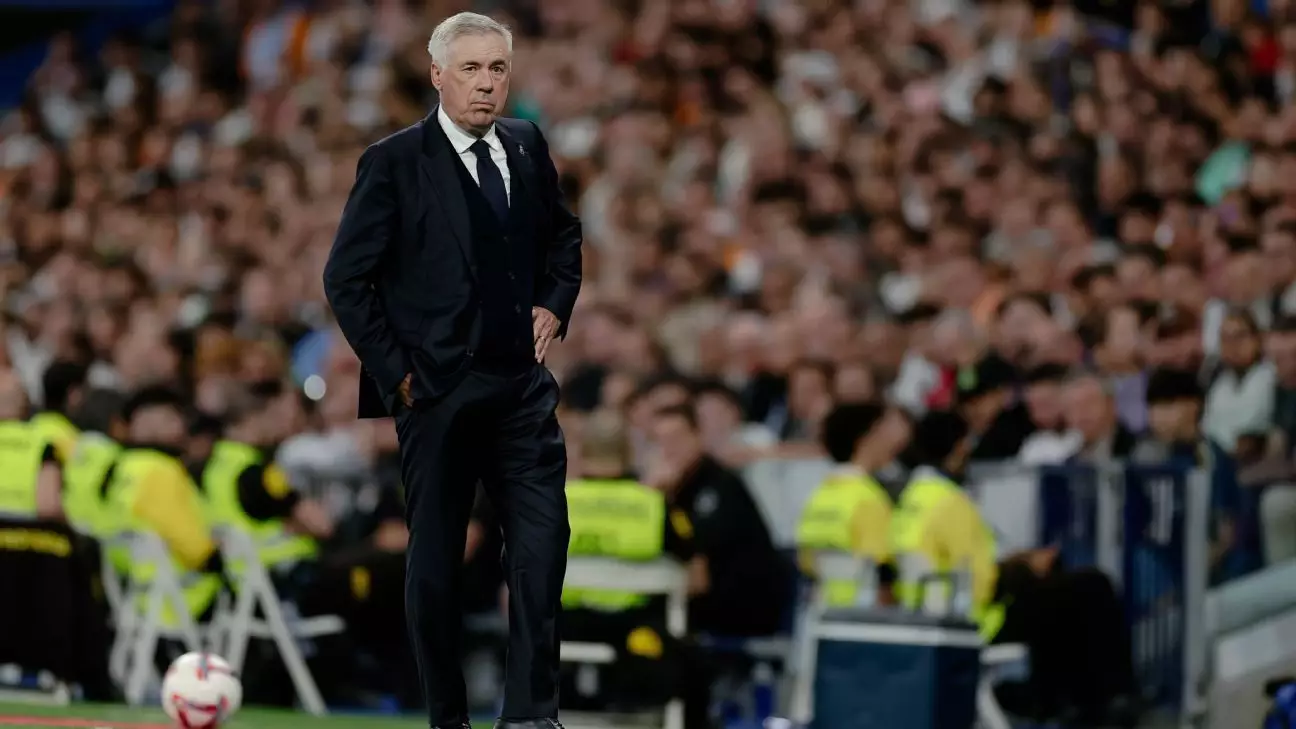In the wake of the recent catastrophic flash floods in Valencia, which tragically claimed the lives of at least 217 individuals, the role of football in Spain has come under intense scrutiny. The devastation wrought by natural disasters often transcends the boundaries of sport, leading many to question the appropriateness of continuing regular sporting events amid a national tragedy. This situation was further complicated when Real Madrid’s manager, Carlo Ancelotti, publicly stated that all football activities should have been suspended until the situation improved.
The floods, one of the most disastrous events in contemporary Spanish history, have resulted in not only a tragic loss of life but also extensive damage to property. Thousands of homes and businesses have suffered irreparable harm, with critical infrastructure and transport links severely disrupted. In response to the calamity, LaLiga collaborated with the Red Cross to initiate fundraising efforts aimed at supporting those impacted by the floods. This significant humanitarian endeavor emphasizes the social responsibility that sports organizations carry during emergencies.
Despite the protests from many involved in Spanish football, including Ancelotti and fellow coach Diego Simeone of Atlético Madrid, LaLiga proceeded with eight matches, postponing only the games involving teams from the most affected regions. This decision was met with widespread criticism, suggesting an inconsistency in the league’s priorities—balancing commercial interests against the devastating backdrop of a national tragedy.
Ancelotti articulated a sentiment shared by many, noting the futility in discussing football amidst such sorrow. For him and others, the emotional toll of the floods overshadowed the thrill of competition. His comments underline a human aspect of sports that often gets lost in discussions dominated by statistics, results, and performance. The need for compassion during such dire circumstances seems paramount, posing a moral challenge to those in positions of power within the sport.
The continuation of matches raises questions about the mental preparedness of players and coaches. Ancelotti expressed difficulty in focusing on football while mourning the losses affecting many in the community. Competing in an environment laden with grief could impede performance and alter the dynamics of the game entirely. Players are, after all, individuals with feelings and connections to their communities. The idea of celebrating victory seems almost grotesque when set against a backdrop of collective mourning.
Lucas Vázquez, a full-back for Real Madrid, echoed Ancelotti’s sentiments regarding the limited power coaches and players have in influencing decisions that affect their professional lives. His acknowledgment of feeling powerless highlights a deeper issue within professional sports: the disconnect between the governing bodies and those directly involved in the game. This disparity can lead to a feeling of helplessness among athletes and coaches, caught between their professional obligations and their moral compass.
The dilemma faced by LaLiga and its members amid the Valencia floods illustrates a broader issue in sports regarding accountability during times of crisis. The cultural fabric of football in Spain is woven tightly with emotion, community, and the shared experiences of their fans. Therefore, it becomes crucial to weigh the importance of these factors against the business imperatives that often dominate discussions in the footballing world.
As Spain navigates the aftermath of this national tragedy, it may require a reevaluation of priorities within its sports governance. It poses a significant question: how should leagues and teams position themselves in relation to their communities during crises? The integrity of sport should not merely reside in the results of a match but should also encompass the welfare of its supporters and the greater community it represents. The path forward might involve a more compassionate approach—one that acknowledges the human element of sport and its effects in times of strife.

Leave a Reply